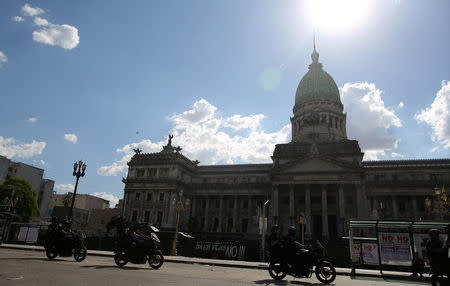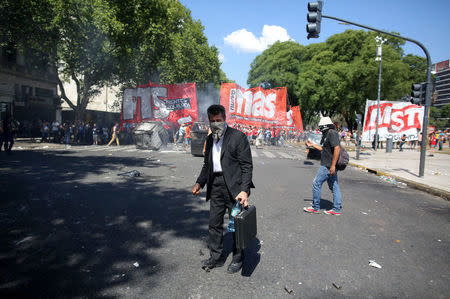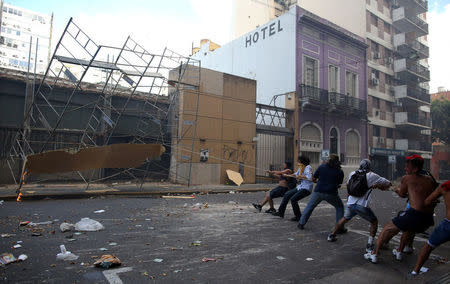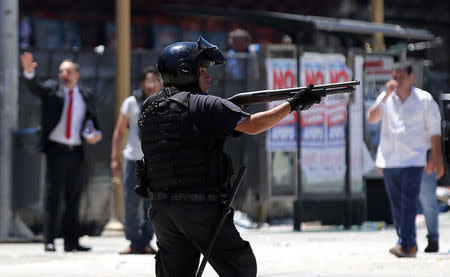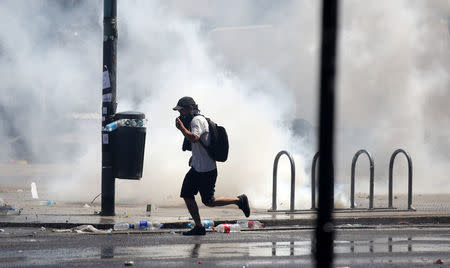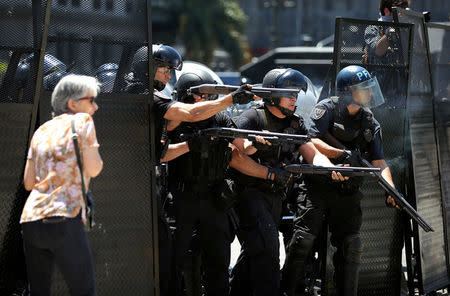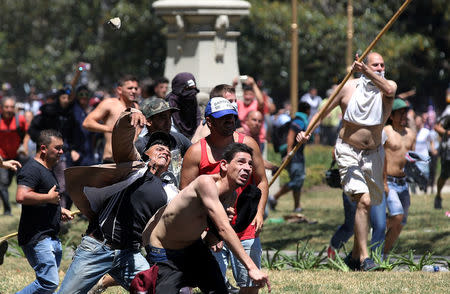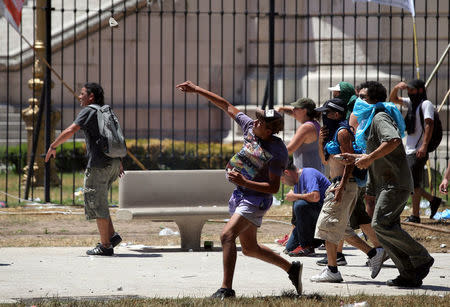Argentina Congress suspends pension reform vote due to protests
By Luc Cohen BUENOS AIRES (Reuters) - Argentina's lower house on Thursday suspended a vote on President Mauricio Macri's pension reform plan, after the debate became a shouting match and protesters and police clashed violently outside Congress. The bill, which passed the Senate last month, is crucial for Macri's efforts to cut the fiscal deficit but has drawn criticism from opposition politicians and labor unions, who say it will hurt retirees and welfare recipients. Before Thursday's scheduled vote, the country's top union called a general strike for the following day. Demonstrators threw stones at metal barriers set up outside parliament, and security forces responded with rubber bullets and tear gas. The incident showed strong obstacles remain for Macri's pro-business agenda, which includes tax and labor reforms. While his "Let's Change" coalition swept October's legislative midterm vote, he lacks a majority in either chamber. "We will not back down," opposition lawmaker Mirta Tundis told local television. "It is outrageous that year after year, those who have less are affected most." The pension reform would change the formula used to calculate benefits. Payments would adjust every quarter based on inflation, rather than the current system of twice-yearly adjustments linked to wage rises and tax revenue. Economists say the current formula means benefits go up in line with past inflation. Left unchanged, that could harm Macri's efforts to cut the fiscal deficit. Under the new formula, benefits would increase by 5 percentage points above inflation, according to Cabinet Chief Marcos Pena. The plan would take effect at a time of lower inflation expectations, hence slowing the pace of pension benefit increases. "This formula guarantees the sustainability of the system and that retirees will not lose to inflation," Macri-allied lawmaker Luciano Laspina told reporters. Macri is aiming to cut the fiscal deficit to 3.2 percent of gross domestic product next year from 4.2 percent this year, and to reduce inflation to 8-12 percent from above 20 percent this year. ($1 = 17.4300 Argentine pesos) (Reporting by Maximiliano Rizzi and Luc Cohen; Editing by David Gregorio)
